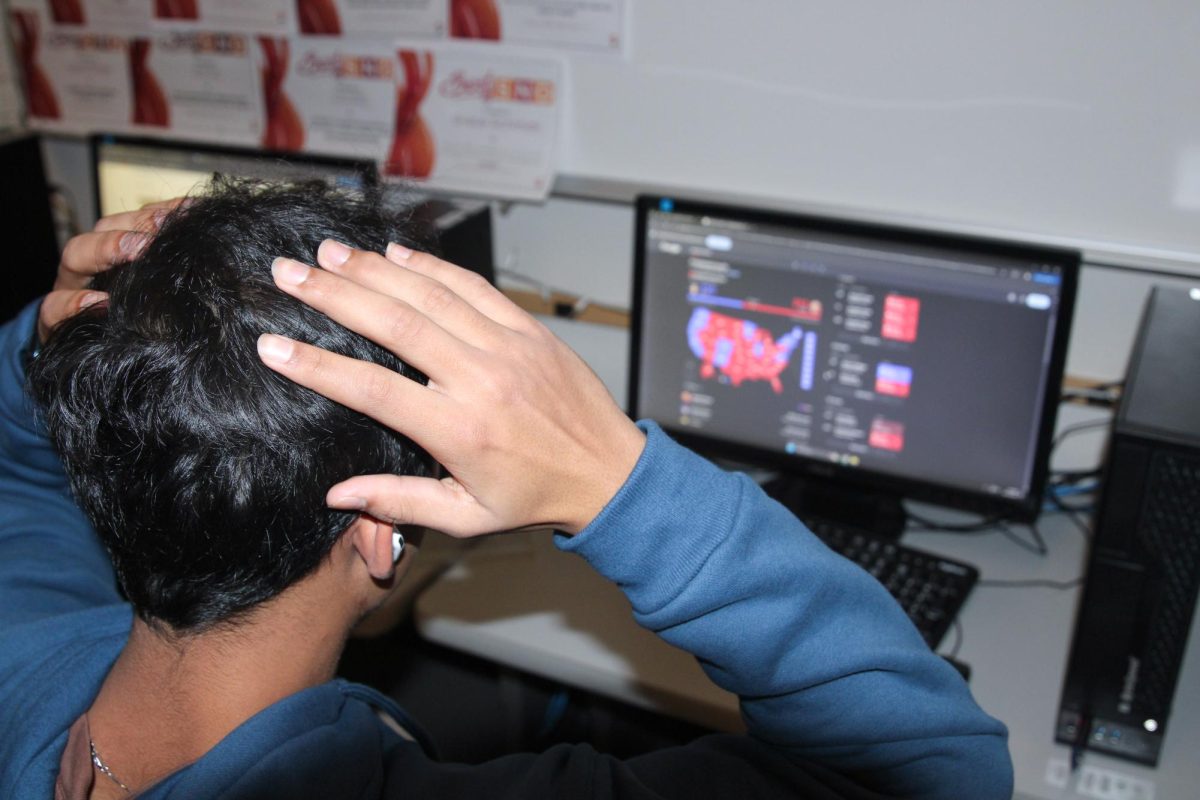Over the course of the last two weeks, several prestigious universities including Columbia University, Yale University and the University of Michigan have come under fire for canceling classes, postponing exams, and offering help centers in response to the 2024 presidential election results. These developments, while unsurprising to some, starkly contrast the response from high schools across the country, including students at PV.
The 2024 presidential election has been one of the most polarizing elections in the 21st century, featuring economic issues and abortion rights among the most divisive topics of debate. On Nov. 5, former president Donald Trump defeated current Vice President Kamala Harris, sparking widespread outrage across the country from Harris supporters, both adults and students alike.
Recent news reports show screenshots of professors from Michigan State University making online announcements to cancel class, while others cite exam scheduling being pushed back to prioritize mental health. Many education professionals have taken to social media to express their displeasure with the election results, particularly regarding Trump’s plans to eradicate the Department of Education.
Many college students across America seemed to share the same outlook on the election results, with their main areas of interest being abortion rights, immigration and foreign policy.
Jaydon Kachapilly, a student at the University of Illinois Urbana-Champaign, describes his campus environment after the election. “There has been activism here and there from different groups, especially from some of the same people that protested against the war in Gaza earlier this year. It’s definitely hard to walk around campus and not hear a discussion related to politics,” he expressed.
In contrast to the vocal reaction from American college students, Pleasant Valley students’ response to the election results was far more tame. While schools can become a polarized environment, the district’s efforts to keep politics out of the classroom – whether in regards to rhetoric, school policies or classroom discussions – appears to be working.
“The day after the election really wasn’t as crazy as I thought it would be. There were a few people with MAGA hats on, but really not much went on – no fights, no crying, and no classes canceled,” explained senior Zeke Moulton.
Some students did express their views via political clothing, which mostly went unchecked by district administration. Several students were seen wearing Trump’s merchandise, including “TRUMP 2024” hats, t-shirts and sweatshirts. In addition to these students, others wore t-shirts that expressed different messages, like “Donald Trump is a white supremacist”, or “Jesus 2024”.
Senior Laura Chen, who chose to wear one of the anti-Trump shirts, shared her thoughts on PV’s student response. “In the past there have been tons of people who wanted to be bold about how they expressed themselves, and to me it is more divisive to wear something that directly supports a candidate and their campaign than to wear something that comments on their character,” she said.
The student response at the University of Michigan, Cornell, and other university campuses not only highlights differences in student outlooks and engagement based on education level but also contrasts responses geographically. This stark contrast once again depicts the influence of cultural, institutional and demographic factors on reactions to major political events and is simultaneously revealing of diverse institutional approaches to handling political expression in educational settings.









